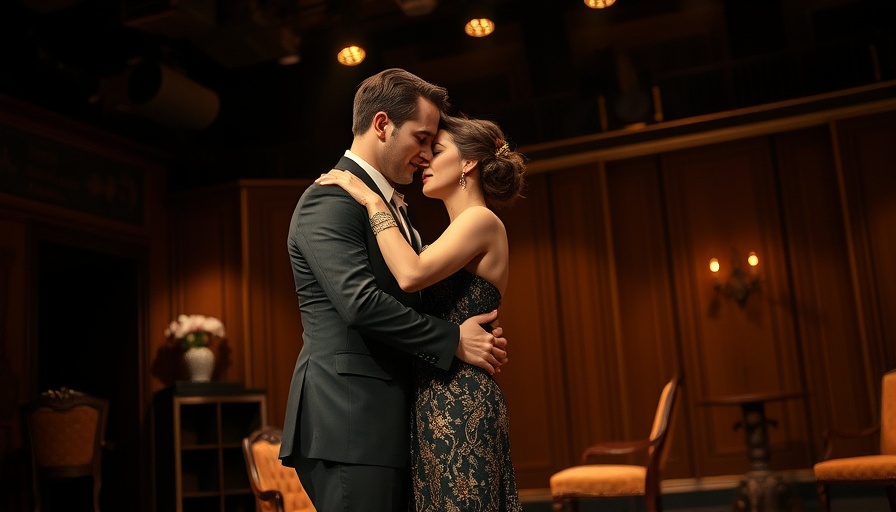
Rediscovering the Emotional Core of Broadway's "The Great Gatsby"
The latest rendition of "The Great Gatsby" on Broadway, featuring Ryan McCartan and Aisha Jackson, offers a fresh and poignant take on the classic tale. As theater-goers flock to see this glamorous adaptation, the themes of love, loss, and societal expectation found in F. Scott Fitzgerald’s iconic novel echo powerfully through the musical score and lyrics. This production resonates not just with the storyline but also with its spectators, inviting them to explore the complexities of human emotions.
In 'Ryan McCartan & Aisha Jackson in "The Great Gatsby" on Broadway,' the discussion dives into the emotional resonance and cultural reflections embedded in this classic tale.
What Makes a "Beautiful Little Fool"?
One of the most compelling sentiments expressed in the rendition is the idea of the "beautiful little fool"—a phrase that encapsulates a mother's hopes and wishes for her daughter in a world that often appears cruel and unyielding. In the lyrics delivered so thoughtfully by McCartan and Jackson, we are reminded of the poignant vulnerability many women face in a society laden with expectations. The mothers who pray for their daughters to embody grace and charm become a powerful commentary on the roles women are traditionally assigned.
Capturing Loss and Longing Through Music
The emotional depth of the lyrics illuminates Jay Gatsby's ache for the past and the unfulfilled desire to reclaim lost love. Lines like "But as I moved on, I had this feeling as I was falling" resonate with anyone who has ever struggled with the bittersweet nature of recollection. The haunting melodies complement the themes, inviting the audience to engage with the essence of longing, regret, and the relentless pursuit of dreams—an experience that is universal and relatable across generations.
Connecting Past and Present Experiences
This interpretation of "The Great Gatsby" does more than adapt a beloved text; it connects audience members to their own histories. The performance holds a mirror up to viewers, reflecting their struggles and aspirations, reminding them of the timeless quest for identity and belonging. The performance allows for individual reflections—each tear shed by an audience member is a testament to the material's powerful resonance.
The Role of Money and Materialism
As the characters grapple with the allure of wealth, the repeating insistence on money within the lyrics, notably the phrase "money, money, money," is a poignant reflection of modern-day aspirations. It speaks to the paradox of success defined by material possession, a theme that is as relevant today as it was in the Roaring Twenties when the story is set. By showcasing the superficiality often cloaked in glamor, the production firmly establishes its critique of societal values that prioritize wealth over personal connections.
A Call to Engage with the Story
As the curtains rise on this gripping rendition of “The Great Gatsby,” theater-goers are encouraged to reflect on their aspirations and the societal narratives that shape them. This production serves as a reminder that the pursuit of happiness often comes with its shadows and challenges. Let yourself be captivated by the music, the emotion, and the raw humanity of the characters. Dive deep into the experience and engage with the cultural discourse that stems from this timeless tale.
 Add Row
Add Row  Add
Add 




Write A Comment